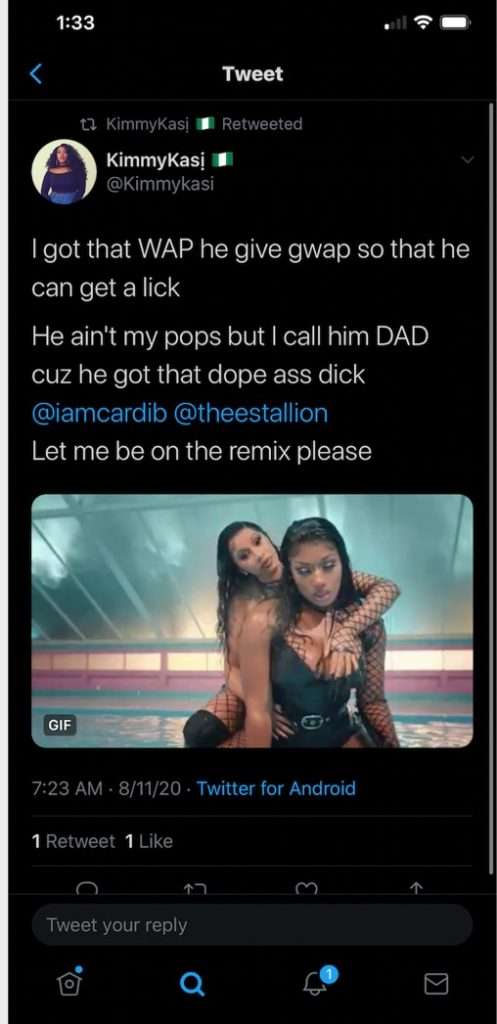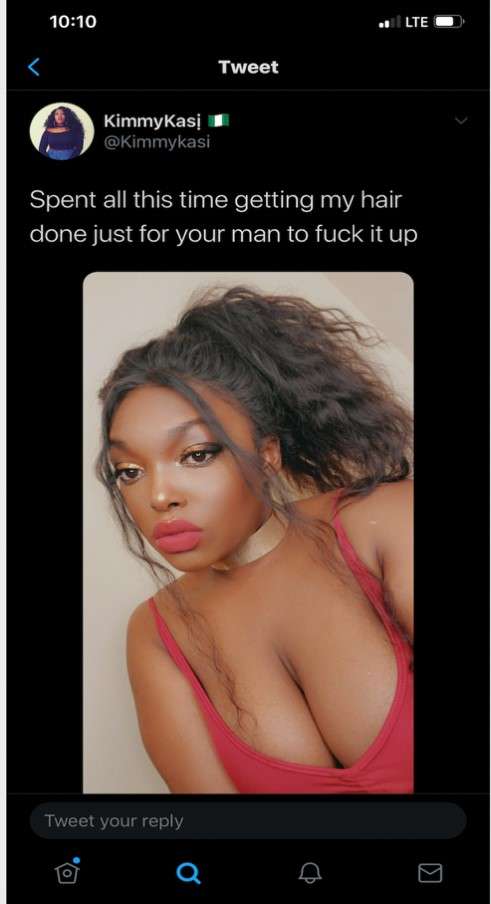The Volokh Conspiracy
Mostly law professors | Sometimes contrarian | Often libertarian | Always independent
Pharmacy Student's First Amendment Lawsuit Based on (Reversed) Expulsion for Twitter Sex Talk Can Proceed
From today's opinion in Diei v. Boyd, written by Judge Chad Readler and joined by Judges Joan Larsen and Stephanie Davis:
Kimberly Diei enrolled at the University of Tennessee Health Science Center College of Pharmacy to pursue a doctorate in pharmacy. At the time, Diei maintained social media accounts under the pseudonym "KimmyKasi," where she posted about song lyrics, fashion, and sexuality. According to Diei, her social media posts neither identified her "as a College of Pharmacy student" nor "indicated any affiliation with the University of Tennessee." Those accounts would nevertheless put Diei at the center of a school investigation.
Just a month into her studies, Diei was informed by Christa George, Chair of the College's Professional Conduct Committee, that the Committee had received an anonymous complaint regarding Diei's social media activity. George explained that the Committee would review the posts to decide whether they violated the "Standards for Student Professionalism Conduct," requirements Diei asserts she was never provided. Following an investigation, the Committee unanimously held that Diei's postings were "sexual," "crude," and "vulgar" in nature, and thereby violated the College's professionalism standards. The Committee, however, did not vote to expel Diei.
The following school year, George notified Diei that the Committee had received a second complaint similar to the first. After a hearing, the Committee informed Diei that the content of the newly complained-of posts also violated the College's professionalism standards. The Committee deemed Diei's social media activity "a serious breach of the norms and expectations of the profession[]," and concluded that Diei did not "meet the threshold of professional behavior or the requirements of the Technical Standards for students." Accordingly, the Committee voted unanimously to dismiss Diei from the College. Diei appealed that decision to the school's Dean. Roughly three weeks later, the Dean reversed the Committee's decision.
Diei sued, claiming the original decision violated the First Amendment, and the Sixth Circuit held that her case could go forward:
First Amendment freedoms are somewhat constrained in the educational context. Generally speaking, "students do not 'shed their constitutional rights to freedom of speech or expression,' even 'at the schoolhouse gate.'" At the same time, public high schools and universities have considerable authority to control student speech in light of the pedagogical roles of those institutions. That is not to say the First Amendment necessarily affords the same protection to speech by a high school freshman as it does to a graduate student. Rather, the First Amendment permits teachers, administrators, and courts to consider the "'level of maturity' of the student."
The Supreme Court has directed us in weighing these competing interests. "[S]chools," we understand, "have a special interest in regulating speech that materially disrupts classwork or involves substantial disorder or invasion of the rights of others." But "the leeway the First Amendment grants to schools in light of their special characteristics is diminished" when the speech at issue occurs off campus. "[T]he less the speech has to do with the curriculum and school-sponsored activities, the less likely any suppression will further a 'legitimate pedagogical concern[],' which is why the First Amendment permits suppression under those circumstances only if the speech causes 'substantial disruption of or material interference with school activities.'" …
As alleged, Diei's social media posts were unrelated to the College of Pharmacy and caused no disruption. She posted about sexuality, fashion, and song lyrics—topics that have little bearing on pharmacy studies. Her posts made no reference to her scholarship or her classmates. And she used a pseudonym to make the posts, further distancing her speech from the College; indeed, Diei alleged that her posts "never identified" her "as a College of Pharmacy student" nor "indicated any affiliation with the University of Tennessee." This is a far cry from a case like Yoder v. University of Louisville (6th Cir. 2013), where a nursing student was expelled for inappropriate blog posts. In that case, after all, the plaintiff both identified herself as a student and violated the confidentiality of her patients. Based on the allegations in the complaint, which we accept as true, Diei's speech did not identify her with the College, had no connection to her studies, and did not lead to disruption. So unless the College had a genuine educational purpose for regulating Diei's speech, her communications fell safely within the confines of First Amendment protection.
Defendants counter that they did have a legitimate pedagogical purpose: training their students to comport with the norms of the pharmacy profession. For support, they cite Al-Dabagh v. Case Western Reserve University (6th Cir. 2015). There, a medical student was denied a degree due to his asserted lack of professionalism, both inside and outside the classroom. But the basis for the student's punishment was his conduct—arriving late, sexual harassment, poor academic performance, and driving while intoxicated—not his speech.
Nor do defendants' citations to two out-of-circuit cases—Hunt v. Board of Regents of the University of New Mexico (10th Cir. 2019), and Keefe v. Adams (8th Cir. 2016)—alter this conclusion. In Hunt, a medical student was punished for online speech. But unlike here, the speech there disparaged and "harass[ed] others," including other students, albeit not by name. Keefe is similarly distinguishable. In that case, a student was removed from a nursing program after the school received complaints about his online posts. 840 F.3d at 525. Yet those posts, it bears noting, were about the school, were directed at other students in the program, and caused material disruption to the "educational experience."
Finally, recall that Diei has alleged that she was never provided with the professionalism policies that formed the basis for her discipline, even when she asked. So those policies are not properly before us. It is thus difficult, at this stage of the litigation, for us to credit the College's claim of a pedagogical purpose. For instance, the College asserts an interest in teaching students to comply with the "professional standards that practicing Tennessee pharmacists live and work under 365 days a year." Perhaps so. But because we have no record at this point whether the College ever imparted such standards, we cannot make that judgment. And even were we to agree that an interest in teaching professionalism may sometimes legitimately curtail a student's speech, the interest evaporates entirely if the College's professionalism regulations bear little resemblance to those of the profession. Again, assessing that relationship would require not only access to the policies, but also a sense of how they are enforced. Neither inquiry is one we can perform on the basis of the complaint alone. At bottom, Diei has adequately alleged that defendants lacked a "legitimate pedagogical concern[]" justifying regulation of her off-campus, online, pseudonymous speech about topics unrelated to the College of Pharmacy that caused no disruption….
And the court also concluded that, if the facts are as plaintiff alleges, defendants should be denied qualified immunity. An excerpt:
[In] Papish v. Board of Curators of the University of Missouri, … a graduate student was expelled for distributing a newspaper on campus "containing forms of indecent speech." … The Supreme Court … [held] that universities cannot rely on "conventions of decency" alone to stifle protected speech. "[I]n the absence of any disruption of campus order or interference with the rights of others," the Supreme Court explained, a university cannot "proscribe" speech based on its content—"no matter how offensive to good taste" the speech may be. The First Amendment, the Supreme Court observed, "leaves no room for the operation of a dual standard in the academic community with respect to the content of speech." …
And the court went on to say:
This is not to say that a professionalism policy may never serve a pedagogical purpose. A university may use a policy of that ilk to inculcate graduate students with the norms and expectations of their professions, preparing them for their future endeavors. In some cases, in other words, instructional purposes may give universities "space" to discipline "speech by students in professional schools that appears to be at odds with customary professional standards."
But even when a professional school adopts a policy regulating student conduct for pedagogical reasons, the policy must genuinely reflect the professional norms and provide students with sufficient notice of what activity could subject them to discipline. Without sufficient notice, the university policy risks becoming a tool for chilling student speech rather than fostering student development. This concern becomes a reality when, as alleged here, a university fails to provide students with the policy in the first place. It is exceedingly difficult to see how any professionalism policy could serve a pedagogical purpose if students are unaware of its existence.
Based on Diei's complaint, the College's treatment of her speech clearly transgressed the school's authority. Diei alleges that her speech did not concern her courses, classmates, or school, nor did it have any disruptive effect on school activities. Further, Diei alleges that she never received the professionalism policies that gave rise to her punishment. In Diei's case, then, the professionalism policies served no pedagogical purpose….
I think the proper First Amendment rule is more speech protective than the panel's analysis: Papish expressly rejected the notion that the university's "legitimate authority to enforce reasonable regulations as to the time, place, and manner of speech and its dissemination" extends to "disapproved content … rather than the time, place, or manner of its distribution." And Papish expressly held that "the First Amendment leaves no room for the operation of a dual standard in the academic community with respect to the content of speech," which is to say a different standard than the First Amendment applies to the government as regulator. Or, to quote Healy v. James (1972),
[T]he precedents of this Court leave no room for the view that, because of the acknowledged need for order, First Amendment protections should apply with less force on college campuses than in the community at large. Quite to the contrary, "[t]he vigilant protection of constitutional freedoms is nowhere more vital than in the community of American schools."
This means that, outside class discussions and assignments, public universities generally may not restrict otherwise protected student speech based on its content, even if they view the message of the speech as "disruptive" or not "professional." (I say "otherwise protected" because of course some speech, such as true threats of illegal conduct, solicitation of illegal conduct, and so on, is generally unprotected, even against criminal punishment or civil liability. Under such circumstances, the government as educator has the power to punish such unprotected speech through university discipline as well. Likewise, when the university has students provide patient care or client services at law school, it can restrict their disclosure of confidential material that they acquire through such mechanisms—just as the government as sovereign can restrict the disclosure of confidential material acquired by litigants in discovery.) But in any event, I think the court's result here was quite right.
Here, by the way, is Diei's speech, as alleged in the Complaint:
[60.] For example, in the following tweet, Diei contributed to a trending discussion on Twitter about the song "WAP" by Cardi B featuring Megan Thee Stallion by suggesting lyrics for a possible remix:
[62.] In another tweet, Diei defended the lyrics of "WAP" against criticism from other users—who were arguing that those lyrics were inappropriate—by pointing out that humans are inherently sexual beings:
[63.] And in another tweet, Diei joked about the amount of time she spends getting prepared to go out for the evening by referencing the popular song "Partition" by Beyoncé:
Greg H. Greubel, Katlyn A. Patton, JT Morris, and Raul A. Ruiz of FIRE (the Foundation for Individual Rights & Expression) represent plaintiff.





Show Comments (23)